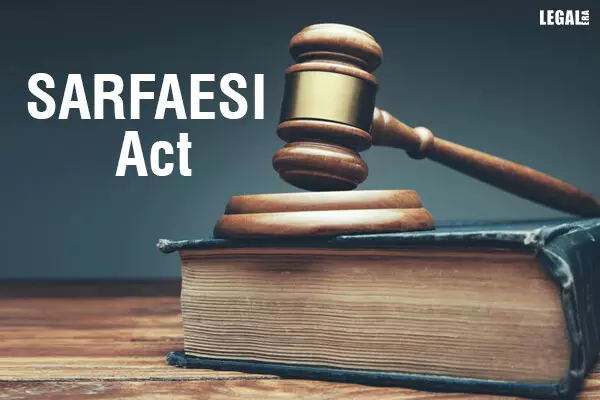- Home
- News
- Articles+
- Aerospace
- AI
- Agriculture
- Alternate Dispute Resolution
- Arbitration & Mediation
- Banking and Finance
- Bankruptcy
- Book Review
- Bribery & Corruption
- Commercial Litigation
- Competition Law
- Conference Reports
- Consumer Products
- Contract
- Corporate Governance
- Corporate Law
- Covid-19
- Cryptocurrency
- Cybersecurity
- Data Protection
- Defence
- Digital Economy
- E-commerce
- Employment Law
- Energy and Natural Resources
- Entertainment and Sports Law
- Environmental Law
- ESG
- FDI
- Food and Beverage
- Gaming
- Health Care
- IBC Diaries
- In Focus
- Inclusion & Diversity
- Insurance Law
- Intellectual Property
- International Law
- IP & Tech Era
- Know the Law
- Labour Laws
- Law & Policy and Regulation
- Litigation
- Litigation Funding
- Manufacturing
- Mergers & Acquisitions
- NFTs
- Privacy
- Private Equity
- Project Finance
- Real Estate
- Risk and Compliance
- Student Corner
- Take On Board
- Tax
- Technology Media and Telecom
- Tributes
- Viewpoint
- Zoom In
- Law Firms
- In-House
- Rankings
- E-Magazine
- Legal Era TV
- Events
- News
- Articles
- Aerospace
- AI
- Agriculture
- Alternate Dispute Resolution
- Arbitration & Mediation
- Banking and Finance
- Bankruptcy
- Book Review
- Bribery & Corruption
- Commercial Litigation
- Competition Law
- Conference Reports
- Consumer Products
- Contract
- Corporate Governance
- Corporate Law
- Covid-19
- Cryptocurrency
- Cybersecurity
- Data Protection
- Defence
- Digital Economy
- E-commerce
- Employment Law
- Energy and Natural Resources
- Entertainment and Sports Law
- Environmental Law
- ESG
- FDI
- Food and Beverage
- Gaming
- Health Care
- IBC Diaries
- In Focus
- Inclusion & Diversity
- Insurance Law
- Intellectual Property
- International Law
- IP & Tech Era
- Know the Law
- Labour Laws
- Law & Policy and Regulation
- Litigation
- Litigation Funding
- Manufacturing
- Mergers & Acquisitions
- NFTs
- Privacy
- Private Equity
- Project Finance
- Real Estate
- Risk and Compliance
- Student Corner
- Take On Board
- Tax
- Technology Media and Telecom
- Tributes
- Viewpoint
- Zoom In
- Law Firms
- In-House
- Rankings
- E-Magazine
- Legal Era TV
- Events
Supreme Court: High Court under Section 482 CrPC Cannot Quash Order Passed by Magistrate under Section 14 of SARFAESI Act

Supreme Court: High Court under Section 482 CrPC Cannot Quash Order Passed by Magistrate under Section 14 of SARFAESI Act
The Supreme Court has affirmed that a High Court cannot quash an order passed by a Magistrate under Section 14 of the Securitisation and Reconstruction of Financial Assets and Enforcement of Security Interest Act, 2002 (SARFAESI Act), in exercise of its powers under Section 482 Code of Criminal Procedure, 1973 (CrPC).
The division judges bench comprising of Justices AS Bopanna and MM Sundresh were considering a challenge to an order of the Madras High Court that had quashed an order under Section 14 of the Securitisation and Reconstruction of Financial Assets and Enforcement of Security Interest Act, 2002 (SARFAESI Act) under Section 482 of the CrPC.
While setting aside the order of the High Court the Supreme Court held that an order under Section 14 of the SARFAESI Act cannot be quashed under Section 482 of the CrPC when there is a remedy under the SARFAESI Act.
A petition was filed under Section 482 CrPC challenging an order passed by Chief Metropolitan Magistrate Court, Egmore, Chennai under Section 14 SARFAESI Act (to assist secured asset). The court agreed with the contention of the petitioner that this order was passed by the Magistrate without affording an opportunity of hearing to the Petitioner Before the Apex Court, The contention raised was that against the order passed by the District Magistrate under of the SARFAESI Act, proceedings under Section 482 of CrPC., was not maintainable.
Conflicting views were expressed by Madras High Court on this issue. In one of the orders passed in the year 2020, a single judge of the High Court had held that the Chief Metropolitan Magistrate is a persona designata under the SARFAESI Act and his orders cannot be challenged under Section 482 CrPC. Moreover, another single judge observed that order under Section 14 of SARFAESI Act ‘can be very well challenged’ before the High Court under Section 482 CrPC.
The Court noted, “The contention put forth in the instant petition is that a petition filed under Section 482 of the Criminal Procedure Code (Cr.P.C.) to quash an order passed under the provisions of the SARFAESI Act was not sustainable. We note that the said contention has sufficient force as any remedy against such order can be availed only under the SARFAESI ACT’, 2002.”
The Court set aside the order dated 15 May, 2022 passed by the Madras High Court.


